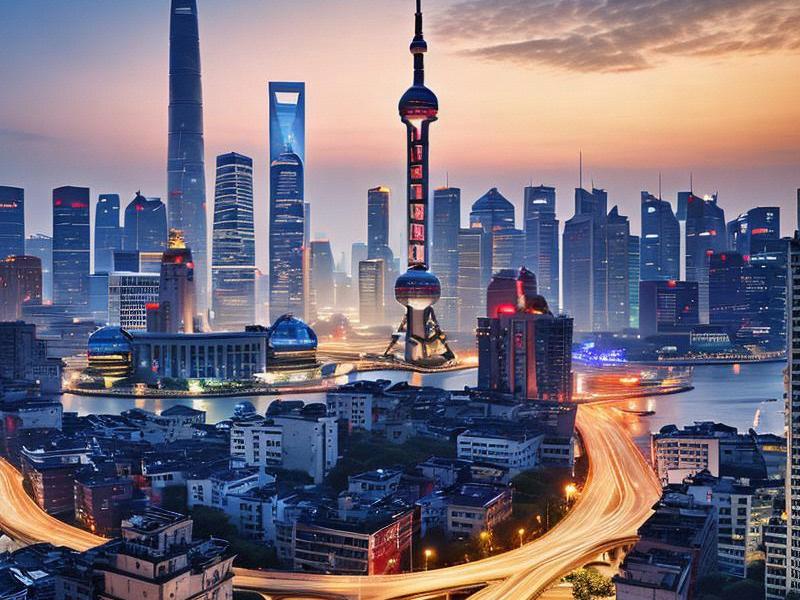
Shanghai, often referred to as "The City That Never Sleeps" in China, is not just a city; it's a symbol of modernity, progress, and a bridge between the East and the West. Situated on the eastern coast of China, at the mouth of the Yangtze River, Shanghai is the largest city in China and one of the most populous cities in the world. Its strategic location has made it a key player in international trade and finance for over a century.
Historically, Shanghai was a small fishing village until the 19th century when it became a treaty port following the First Opium War. This marked the beginning of Shanghai's transformation into a major international city. The concessions established by foreign powers brought with them a blend of architectural styles, cultural influences, and economic opportunities that have left a lasting imprint on the city.
The urban development of Shanghai is nothing short of remarkable. In the past few decades, the city has undergone a dramatic transformation, emerging as a global metropolis. The skyline of Shanghai is dominated by its iconic skyline, featuring the Oriental Pearl Tower, the Shanghai Tower, and the Jin Mao Tower, among others. These modern skyscrapers stand in stark contrast to the historic Bund, which showcases a mix of colonial-era buildings and the futuristic Pudong skyline across the Huangpu River.
Shanghai's economic hub status is well-recognized worldwide. It is home to the Shanghai Stock Exchange, one of the largest stock exchanges in Asia, and the city's port is the busiest container port in the world. The financial district of Lujiazui is a testament to Shanghai's economic prowess, with its gleaming skyscrapers housing some of the world's leading banks and financial institutions. The city's economy has diversified over the years, with key sectors including finance, trade, manufacturing, technology, and tourism.
上海龙凤千花1314 Culturally, Shanghai is a vibrant city that seamlessly blends tradition with modernity. The city is known for its unique blend of cultures, reflecting its history as a meeting point of Chinese and Western influences. The French Concession, for example, still retains much of its European charm, with tree-lined streets, cafes, and boutique shops. Meanwhile, the Yu Garden and the nearby Yuyuan Bazaar offer a glimpse into the traditional Chinese architecture and culture.
Shanghai's culinary scene is another highlight, offering a wide range of dishes from all over China, as well as international cuisines. The city's night markets and food streets are popular destinations for both locals and tourists, showcasing the diversity and richness of Shanghai's food culture.
The city's commitment to preserving its cultural heritage is evident in the numerous museums, art galleries, and historical sites scattered throughout the city. The Shanghai Museum, for instance, is renowned for its extensive collection of Chinese art, while the Power Station of Art is a contemporary art space that has become a cultural landmark.
Shanghai's global influence continues to grow, with the city playing a pivotal role in international diplomacy, trade, and cultural exchange. It has hosted numerous international events, including the World Expo in 2010, which attracted millions of visitors from around the world. The Expo not only showcased Shanghai's ability to host large-scale events but also highlighted the city's commitment to sustainable development and innovation.
上海品茶论坛 The city's infrastructure is state-of-the-art, with an efficient public transportation system that includes the world's first maglev train, connecting the city center with Pudong International Airport. The metro system is extensive and reliable, making it easy for residents and visitors to navigate the city.
Shanghai's education and research institutions are also among the best in the country, attracting students and scholars from around the world. The city is home to prestigious universities such as Fudan University and Tongji University, which contribute to the city's intellectual and cultural vibrancy.
In recent years, Shanghai has also been at the forefront of China's efforts to promote green and sustainable urban development. The city has implemented various initiatives to reduce pollution, improve air quality, and promote the use of renewable energy. The construction of the Bund Riverfront and the Xincheng Waterfront parks are examples of how the city is integrating green spaces into its urban landscape.
上海龙凤419 Shanghai's real estate market is another area of interest, with the city being home to some of the most expensive properties in China. The luxury housing market in areas like Hongqiao and Gubei Water Town caters to the city's affluent residents and expatriates.
Tourism is a significant contributor to Shanghai's economy, with millions of visitors each year coming to experience the city's unique blend of history, culture, and modernity. Popular attractions include the Bund, Yu Garden, Nanjing Road, and the Shanghai Disneyland, which opened in 2016 and has become a major tourist destination.
In conclusion, Shanghai is a city that truly embodies the spirit of China's rapid modernization and global integration. Its rich history, dynamic economy, vibrant culture, and commitment to sustainability make it a fascinating and influential city on the world stage. As Shanghai continues to grow and evolve, it remains a beacon of progress and a symbol of what is possible when tradition meets modernity.
